Related Research Articles
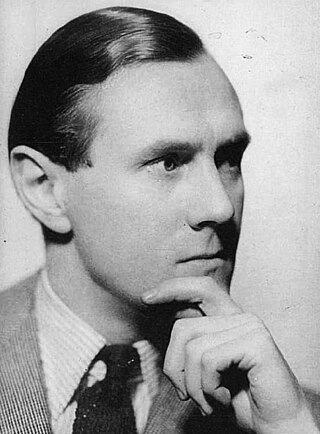
Patrick Victor Martindale White was an Australian novelist and playwright who explored themes of religious experience,personal identity and the conflict between visionary individuals and a materialistic,conformist society. Influenced by the modernism of James Joyce,D. H. Lawrence and Virginia Woolf,he developed a complex literary style and a body of work which challenged the dominant realist prose tradition of his home country,was satirical of Australian society,and sharply divided local critics. He was awarded the Nobel Prize in Literature in 1973,the only Australian to have been awarded the literary prize.
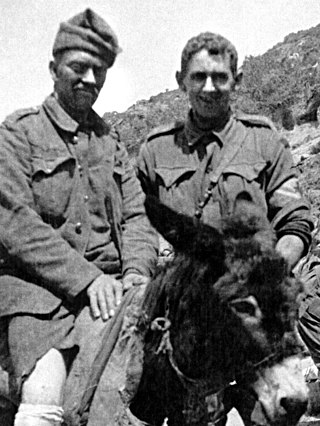
John Kirkpatrick,commonly known as John Simpson,was a stretcher bearer with the 3rd Australian Field Ambulance during the Gallipoli campaign –the Allied attempt to capture Constantinople,capital of the Ottoman Empire,during the First World War.

Australian literature is the written or literary work produced in the area or by the people of the Commonwealth of Australia and its preceding colonies. During its early Western history,Australia was a collection of British colonies;as such,its recognised literary tradition begins with and is linked to the broader tradition of English literature. However,the narrative art of Australian writers has,since 1788,introduced the character of a new continent into literature—exploring such themes as Aboriginality,mateship,egalitarianism,democracy,national identity,migration,Australia's unique location and geography,the complexities of urban living,and "the beauty and the terror" of life in the Australian bush.

David George Joseph Malouf is an Australian poet,novelist,short story writer,playwright and librettist. Elected a Fellow of the Royal Society of Literature in 2008,Malouf has lectured at both the University of Queensland and the University of Sydney. He also delivered the 1998 Boyer Lectures.

The Jindyworobak Movement was an Australian literary movement of the 1930s and 1940s whose white members,mostly poets,sought to contribute to a uniquely Australian culture through the integration of Indigenous Australian subjects,language and mythology. The movement's stated aim was to "free Australian art from whatever alien influences trammel it" and create works based on an engagement with the Australian landscape and an "understanding of Australia's history and traditions,primeval,colonial and modern".
Gallipoli is a peninsula in northwestern Turkey.
Kenneth Stanley Inglis,was an Australian historian.
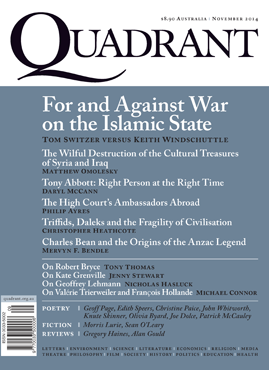
Quadrant is a conservative Australian literary,cultural,and political journal,which publishes both online and printed editions. As of 2019,Quadrant mainly publishes commentary,essays and opinion pieces on cultural,political and historical issues,although it also reviews literature and publishes poetry and fiction in the print edition. Its editorial line is self-described "bias towards cultural freedom,anti-totalitarianism and classical liberalism".
William Leonard Gammage is an Australian academic historian,adjunct professor and senior research fellow at the Humanities Research Centre of the Australian National University (ANU). Gammage was born in Orange,New South Wales,went to Wagga Wagga High School and then to ANU. He was on the faculty of the University of Papua New Guinea and the University of Adelaide. He is a fellow of the Australian Academy of Social Sciences and deputy chair of the National Museum of Australia.
The Queensland Premier's Literary Awards were an Australian suite of literary awards inaugurated in 1999 and disestablished in 2012. It was one of the most generous suites of literary awards within Australia,with $225,000 in prize money across 14 categories with prizes up to $25,000 in some categories. The awards upon their establishment incorporated a number of pre-existing awards including the Steele Rudd Award for the best Australian collection of new short fiction and the David Unaipon Award for unpublished Indigenous writing.
Gail Jones is an Australian novelist and academic.
Leslie Allen Carlyon was an Australian writer and newspaper editor.
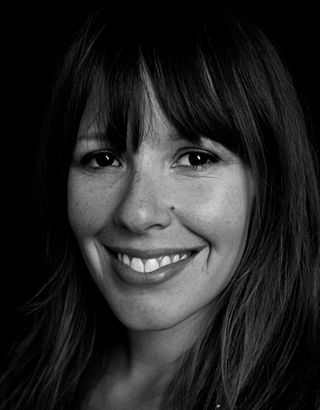
Tara June Winch is an Australian writer. She is the 2020 winner of the Miles Franklin Award for her book The Yield.
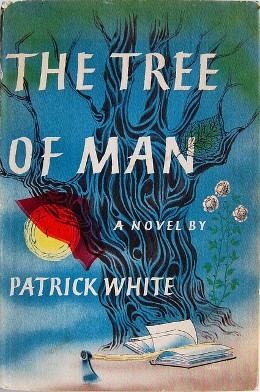
The Tree of Man is the fourth published novel by the Australian novelist and 1973 Nobel Prize-winner,Patrick White.
Peter Alan Stanley is an Australian historian and research professor at the University of New South Wales in the Australian Centre for the Study of Armed Conflict and Society. He was Head of the Centre for Historical Research at the National Museum of Australia from 2007–13. Between 1980 and 2007 he was an historian and sometime exhibition curator at the Australian War Memorial,including as head of the Historical Research Section and Principal Historian from 1987. He has written eight books about Australia and the Great War since 2005,and was a joint winner of the Prime Minister's Prize for Australian History in 2011.
Wakefield Press is an independent publishing company based in the Adelaide suburb of Mile End,South Australia. They publish around 40 titles a year in many genres and on many topics,with a special focus on South Australian stories.
This article presents a list of the historical events and publications of Australian literature during 2006.

Clement Semmler OBE,AM,often referred to as Clem Semmler,was an Australian author,literary critic,broadcaster and radio and television executive.

Hannah Kent is an Australian writer,known for two novels –Burial Rites (2013) and The Good People (2016). Her third novel,Devotion,was published in 2021.

Dark Emu:Black Seeds:Agriculture or Accident? is a 2014 non-fiction book by Bruce Pascoe. It re-examines colonial accounts of Aboriginal people in Australia,and cites evidence of pre-colonial agriculture,engineering and building construction by Aboriginal and Torres Strait Islander peoples. A second edition,published under the title Dark Emu:Aboriginal Australia and the Birth of Agriculture was published in mid-2018,and a version of the book for younger readers,entitled Young Dark Emu:A Truer History,was published in 2019.
References
- 1 2 "The Australian, "Two books share PM's history prize", 20 June 2007". Archived from the original on 23 June 2007. Retrieved 20 June 2007.
- 1 2 "Papers of Peter Cochrane". Trove.
- ↑ Tom Curran Quadrant November 1996, Vol. 40 Issue 11, p22, 3p
- ↑ Peter Stanley "A Narrow, Neo-parochial History" Australian Historical Studies April 2003 Volume 34, Issue 121-page 163
- ↑ "ABC Landline "The Western Front 1916–1918" 27 June 2004". Australian Broadcasting Corporation .
- ↑ "ABC Shop - ABC Commercial". ABC Shop. Archived from the original on 16 July 2007.
- ↑ reviewer, Frank Bongiorno (15 December 2006). "Colonial Ambition: Foundations of Australian Democracy". The Sydney Morning Herald.
- ↑ Cochrane, Peter (2018), Best we forget : the war for white Australia, 1914-18, The Text Publishing Company, ISBN 978-1-925603-75-0
- ↑ "Voss Literary Prize 2019 shortlist announced". Books+Publishing. 19 November 2019. Retrieved 21 November 2019.